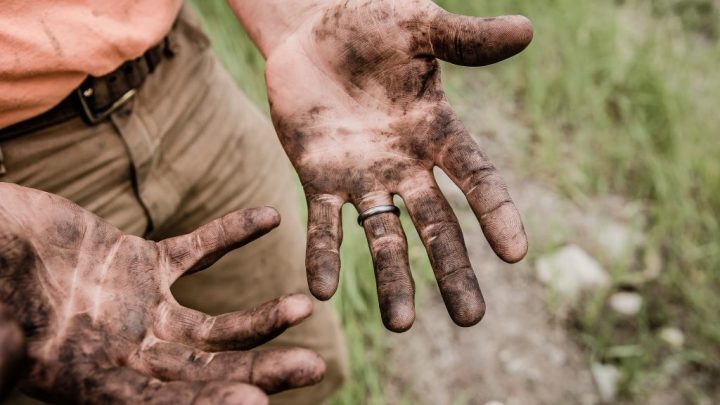The Way We Should All Go by Jack Caseros
There’s a Financial Analyst at the far end of the meeting room, running a finger along an over-sized spreadsheet. She wants to know how I over-spent. It is troubling—double over budget. The Board of Directors doesn’t understand. To their shareholders, they said environmental stewardship was the cost of doing business. Now that cost was too real. It started so simple for them, so abstract, like the way they messaged their mistresses during meetings. I received an email, too: please remediate this salt water spill. It was a big one. Not quite a lake, but I was able to launch a canoe. I spent months on that site. The salt got into everything. My watch rusted out, my glasses became speckled. When we got down to the clay, the real mess started. Salt is worse than oil but it isn’t so photogenic. It runs in rivulets through the soil pores, hardens the subsurface, turns a productive wheat field into a barren wasteland. The Financial Analyst is a gluten-free vegan, wheat fields are someone else’s problem. She repeats the total spend and asks why I kept digging. She can’t see it in the site photos. It looks like nothing. That’s exactly it—but that doesn’t add up in her ledger. Nothing I say would. It wouldn’t matter to the Board. Not even if I told them that the nearby town’s motto was “Taste Our Water”. Not even if I told them that when the cemetery groundskeepers started to dig my father into the ground, I didn’t want to stop. I wanted to dig beyond him, take away all the salty tears in the soil, make it a little less hard, a little more accepting, a little more the way we should all go.
Jack Caseros is a Canadian writer and environmental scientist. He keeps notes on birch bark. Currently, he is studying novel writing at Stanford. Stanford does not accept assignments on birch bark. You can read more from Jack at www.jackcaseros.wordpress.com.
